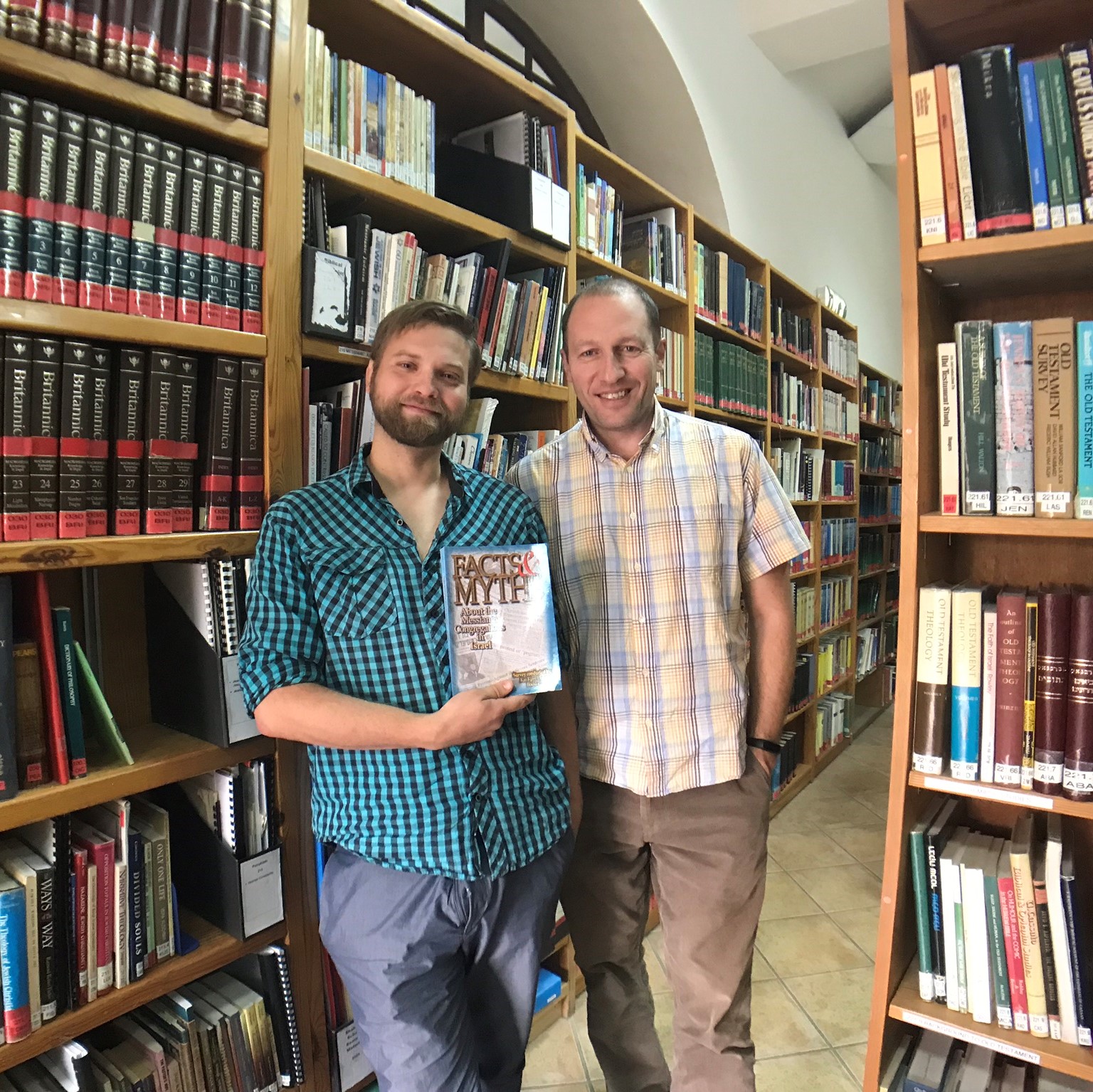As many of our readers are aware, in 1999, Caspari Center was the first to publish in-depth research on the Messianic Movement in Israel, in the form of a book entitled “Facts & Myths About the Messianic Congregations in Israel”. Twenty years on, the Messianic movement has grown tremendously, through the immigration of believers from other countries, through growth of Messianic families and through new believers coming to the faith.
For the past two years, we’ve been engaged in research for an updated edition of Facts & Myths. The hard data we’ve been gathering will give us a clearer picture of the current Israeli Messianic movement than the one we currently have, with speculative estimates seemingly pulled from thin air. (The number of Messianic believers in Israel is commonly quoted as being anywhere from 10,000 to 50,000.) As the research nears completion, Alec Goldberg, our Israel Director, took the time to share some insights with us.
At what stage of the research are we currently?
I have nearly finished interviewing all the pastors of the Russian-speaking congregations, and David Serner [the coordinator of this project] has interviewed all the Ethiopian pastors, as well as the pastors of the international congregations. Together, we have interviewed approximately 160 pastors, and we estimate that there are 240 congregations in all, though we may yet discover a few more.
So we’re two-thirds of the way through. Of course, we will need to wait for the finished result, but what changes have you noticed come about in the past 20 years?
The obvious change is with regard to the number of believers. Our research shows that the number of congregations has roughly tripled, and that the number of believers has either doubled or tripled. As we haven’t yet completed our research, we can’t give more than estimates. But we can reinforce this estimation with some numbers. In 1999, the number of believers in total was approximately 5,000. Today, 5,000 is just the number of believers in Russian-speaking congregations in Israel. And of course, as observers of the Messianic scene in Israel are aware, the number of local ministries has also multiplied, with new initiatives constantly underway.

David Serner and Alec Goldberg with the book Facts & Myths (1999)
Can you tell us about the challenges you’ve faced while doing this research?
The primary challenge has been the reticence of some pastors, approximately 10-15%, to cooperate with us on this book. They don’t always give a reason for it. Some of them don’t see the point of the book; some might object to the research, in principle. Their attitude goes something like this: “This is our congregation. We live our lives and you are welcome to visit, but we don’t want you to write about us.” It’s possible, and I’m just speculating, that some of these pastors have a fear of exposure to outside criticism.
And of course, there are also those who fear that being published in a book will make them vulnerable to persecution from anti-missionary organizations, or to sudden interest from the Ministry of Interior. [The Ministry of Interior has the authority to revoke citizenship to immigrants if it has been determined that they were “not Jews” – because of their faith – at the time of their immigration.] Some landlords who lease their facilities to congregations have come under fire from the anti-missionary organizations, who are capable of exerting tremendous pressure, and don’t shy away from organizing loud and raucous demonstrations outside of the facilities, if it will help their cause.
I can give you a concrete example of this. In the course of my research, I met with a pastor of a congregation whose congregation had been included in the original 1999 Facts & Myths book. The pastor didn’t remember being interviewed for it. The interview went well and we said our goodbyes. Two hours later, he called me and asked me not to publish the content of our interview. He had remembered that the original book had included the fact that he had been a believer prior to coming to Israel. Possibly as a result of this, he had trouble with the Ministry of Interior. He wasn’t keen to repeat the experience, and asked to be kept out of the second book.
Do many believers fear persecution in Israel nowadays?
My impression is that there is currently much less fear of persecution than there was 20 years ago. Back then believers might have been fired simply because of their faith. As a result, they very often hid the fact that they were believers. Nowadays, employers aren’t so quick to fire their employees over this. Also, many believers feel strong enough that when they encounter prejudice because of their faith, they are prepared to take the offender to court.
So while many believers don’t broadcast their faith at work, they are much more open than they used to be.
In the course of your research, did you encounter anything that took you by surprise?
I was incredibly pleased to encounter a number of Russian pastors who established their congregations without any outside financial support from abroad. They had been told there was no way to succeed without it, and their response was: “Of course we will!” They remain financially independent congregations to this day.
Another nice surprise was hearing one Russian pastor define a believer as “someone whose life is continually being transformed”. He’s passionate about serving people who are on a journey, who experience transformation on a continual basis.
We have wonderful supporters who want to know what they can pray for, in regard to this project…
Please do continue to pray for a quick and successful completion to this project. Pray for a good editor to smooth over the text and do justice to the important content within.